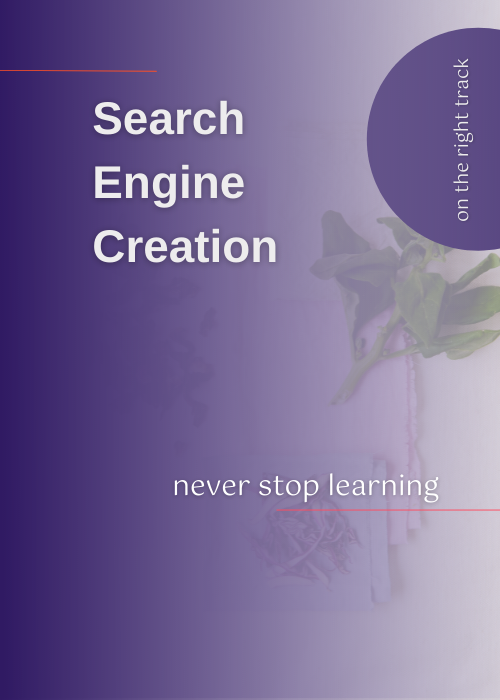Why SEO?
SEO is a way to improve the volume and quality of website traffic through organic search engine results.


Ready to Power your Business?
Google Console Setup
Website Optimization
Google Analytics Setup
Website SEO Audit
Error Removal
On Page SEO
Off Page SEO
Local SEO
Backlink Generation
2 Keywords
Competitor Audit
Content Marketing
Site Structure & Internal Links
6 Month Tenure
Monthly Report
Google Console Setup
Website Optimization
Google Analytics Setup
Website SEO Audit
Error Removal
On Page SEO
Off Page SEO
Local SEO
Backlink Generation
6 Keywords
Competitor Audit
Content Marketing
Site Structure & Internal Links
6 Month Tenure
Monthly Report
Google Console Setup
Website Optimization
Google Analytics Setup
Website SEO Audit
Error Removal
On Page SEO
Off Page SEO
Local SEO
Backlink Generation
10 Keywords
Competitor Audit
Content Marketing
Site Structure & Internal Links
6 Month Tenure
Monthly Report
Why is SEO important?
Visibility and Ranking
When searching for a service or product online, users are more likely to choose one of the top five suggestions that search engines will display. SEO helps you rank high in search results and increase your online awareness. This increases the likelihood that potential customers will click on your website to achieve conversions.
Webtraffic
Simply put, if potential customers can’t find your website, they’re missing out on a sales opportunity. SEOs increase the traffic of organic search engines and increase the number of visitors displayed daily on the page. This directly correlates with increased sales-the more relevant people visit your website, the more likely you are to sell to them.
Reliable
The higher the SEO score, the more it will appear in search engines such as Google and Bing. Higher rankings on Google are attractive to all brands. Because, through increased visibility, the second benefit is the trust gained from potential customers. Users tend to succumb to search engine recommendations. Therefore, if a user ranks high on the keywords they are searching for, the product or service is solidified in the user’s mind as credible.
User Experience
A well-optimized website clearly communicates what products or services are offered, how to get them, and answers questions about them. By customizing your site build for your user experience, search engines such as Google and Bing can easily get the information you need and relay it to your users. If users are having a hard time navigating your website, search engines will probably do so too.
Growth
There is no doubt about it-SEO is the key to growing your brand. As mentioned earlier, the more different and large numbers of keyword search engines you use, the more organic (free) web traffic your website receives. It’s as easy as that.
A well-optimized website is more likely to attract more customers and generate more sales. Also, once you find your website on a search engine, you are more likely to share your brand on other social platforms such as Facebook and Instagram.
What are the main elements of search engine optimization?
Onsite SEO
Onsite SEO is an extension needed to apply to your site’s content and make it compatible with search engines. When optimizing a web page for a search engine, you need to tell the search engine exactly what the web page is in different ways.
Onsite SEO deals with website structure, SEO keywords, internal links, image alt attributes, and other techniques that help search engines analyze and rate the content of your website.
Keywords
keywords are no longer the only SEO technique that is important, but they are still important for website search engine rankings. When we talk about keywords, we refer to specific words or phrases that potential customers use to find answers online.
Careful research is required to select the right keywords for your website and content, and it is important to target high reviewers and low competitive sweet spots. Alter Endeavours Digital Creative provides a basic SEO package for building websites that rely on extensive keyword research to ensure that the language used in your website contains a large number of industry-related keywords. To Content The content you create and share on your website is important for reaching and engaging your audience. Suppose you own a window processing company like our customer ABC Blind & Drapery. To increase awareness in the industry, we recommend a number of blogs exploring the types of window treatments, from the latest window treatments to smart home automation through motor blinds and more.
Therefore, when a local user searches for some kind of windowing question, the blog is displayed. That way, you can start a conversation with your prospect by providing them with the valuable information they are actively looking for. And who comes to mind first when they are ready to buy a new window treatment? You are. Content should be educational, engaging, and shareable.
Local SEO
If you own a local business that serves only the Austin area, your website will not be ranked in other cities. Search engines get the user’s location and come up with suggestions within a specific range, so they can make quick decisions instead of searching for companies that aren’t yet nearby at the time. So if someone wants to find the best sushi in town, google quickly to browse the top results around and make a decision. That said, if your company doesn’t show the best results when it should be included, it’s possible that you’re relocating your business elsewhere.
Methods for improving local SEO include using local keywords, requesting directory listings, and creating business pages on platforms such as Google My Business and Google Maps.
Offsite SEO
Offsite search engine optimization techniques include efforts made on websites other than yourself to improve your ranking. An important element of offsite SEO is link building, or “backlinking.” This is to link other trusted, high-traffic websites to your website.
backlink
WhatsApp us